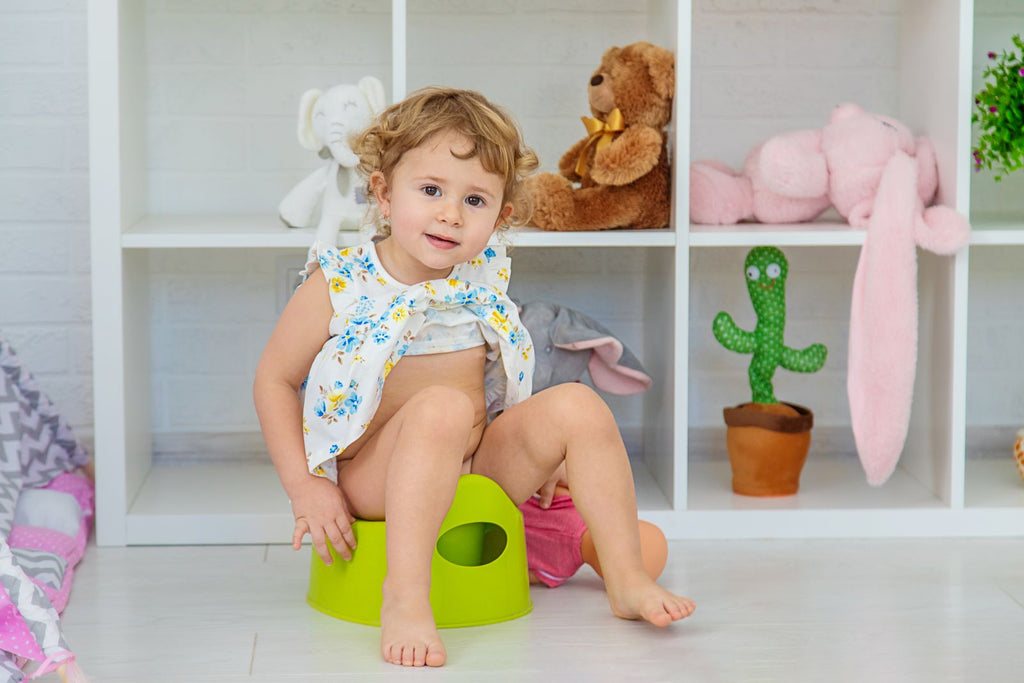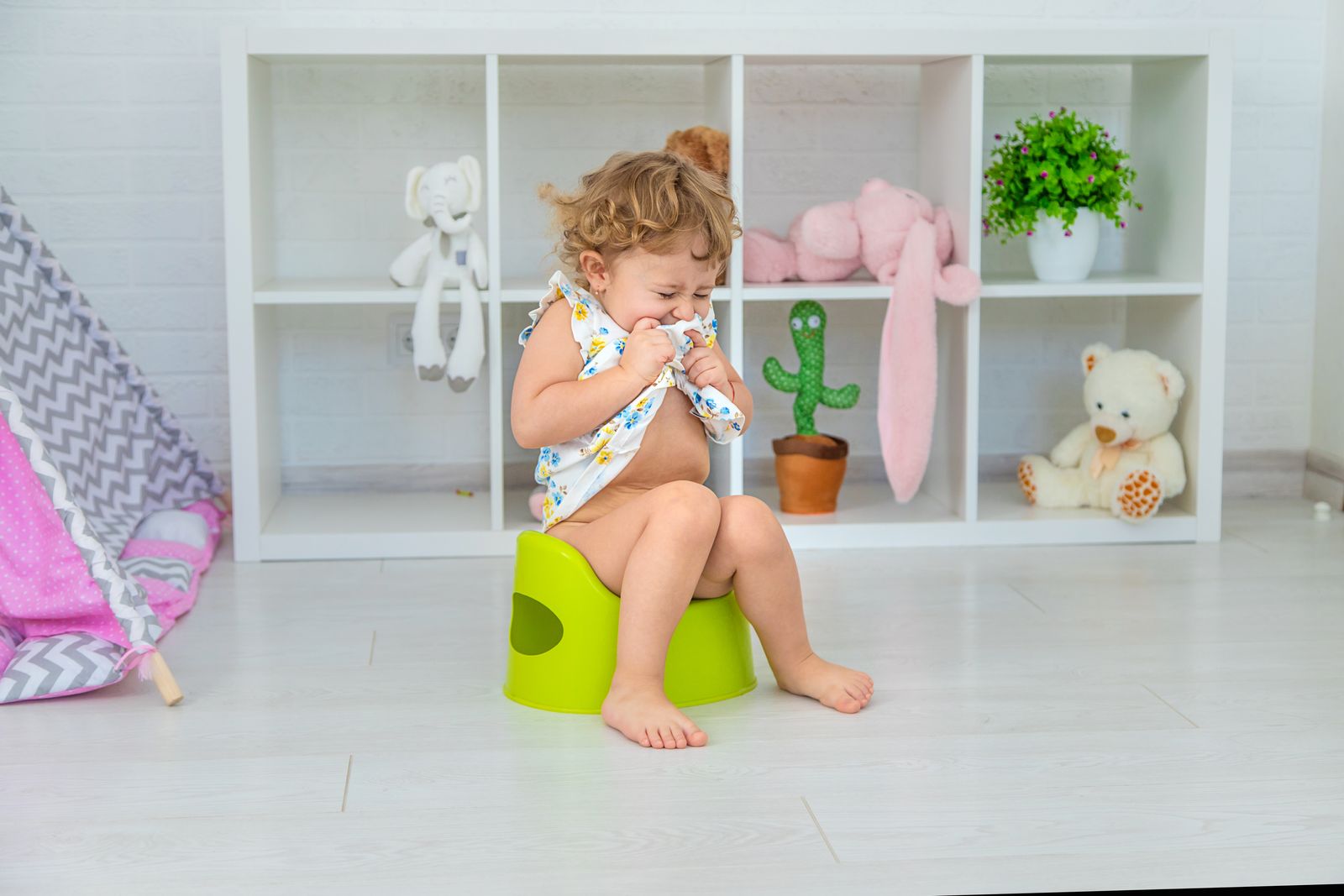Different children develop at different rates. It’s difficult for children below 12 months to control their bowels and urine. Beyond 18 months, they gain control over their bowels.
This is the perfect time to start toilet training. Watch for signs that your toddler is ready for potty training:
- They can walk on their own to the potty
- They can tell when they need to go potty
- They can control the muscles used to go potty
Potty training is an important milestone in a child's development and can be a challenging process for parents.
Once you are confident that your child is ready to ditch the diapers, try these potty training tips to help your child learn to use the toilet:
Don’t start toilet training too early. Look for signs that your child may be ready to start potty training, such as showing an interest or wanting to use the toilet and being able to communicate when they need to go.
Set a consistent potty schedule and stick to it, so your child knows when to expect bathroom breaks. Start by putting your child on the potty or the toilet or alternatively ask your child at regular intervals if they need to wee or poo. If you’re sure your child hasn’t done a poo or wee in a while, remind them that they might need to go.
Choose a potty seat or toilet seat that is comfortable and appropriate for your child's size and age.
Teach your child to wipe properly and wash their hands after using the bathroom. Explain to your child the importance of hand hygiene.
Toilet training can take time, so be patient and don't get discouraged if there are setbacks.
Once you start training your toddler, don't switch back and forth between pull-ups, training pants and underwear. Consistency is key to success.
Celebrate each milestone and success with your child, such as using the potty or toilet independently or staying dry throughout the day.
-
Be prepared for accidents
When you begin tell your child accidents will happen. Your child has been wearing nappies their whole life, so remembering to use the toilet will take practice. Be prepared with extra clothes and cleaning supplies.
-
Make dressing and undressing easy
As part of the training, let them practice dressing and undressing. Avoid overalls, and don't dress your child in clothes or pants with many buttons, zippers, tight clothing, or oversized clothing.
These can hinder the child’s progress in getting onto the toilet or potty seat. What they wear during this stage contributes to how confident and comfortable they will be with their potty training.
The best way for your children to learn is by practice. Train them through each step of going potty. To prepare your child get books and materials to read to your kids. Most parents who get their toddlers ready to begin toilet training do it through regular practice. Continuous practice indeed makes them perfect.
-
Praise and reward success
Some find success with potty training by rewarding their children.
-
Making potty training fun
Don't punish your child. Use positive reinforcement, such as stickers or small rewards, to encourage your child to use the toilet or potty. Make sitting on the potty more enjoyable. Put their dolls or stuffed animals next to their potty chair.
Telling potty time stories, giving stickers, or reading books can also make it more exciting. Sing a song together during potty time. These are all ways of reducing stress and making it more exciting for your toddler. Positive reinforcement is essential when your child is toilet training.
It is important to repeat the same process again and again. It helps your children focus and learn to do it on their own. Make a routine for potty training and follow it strictly.
Some parents use a potty “alarm”, which goes off at specific time intervals to remind them of taking their kids to the potty.
Just be sure that you don’t push your children too much to stay on a schedule. Let them learn at their own pace. Every child is unique and will do things differently. Know your child’s pace and go along with it.
Talk to your doctor If your child is struggling or shows signs of resistance, or alternatively seek advice from a pediatrician or a potty training specialist if you have any questions about toilet training.
Final thoughts
Potty training is certainly not an easy task. Teaching your children all the different steps involved can be challenging. But with a positive attitude, consistency, and patience, you will succeed.
For more great baby care tips & hacks be sure to check the Attipas blog.
If you're looking for Pre Walker Shoes, look no further than Attipas. We deliver quality and affordable shoes Australia wide.


